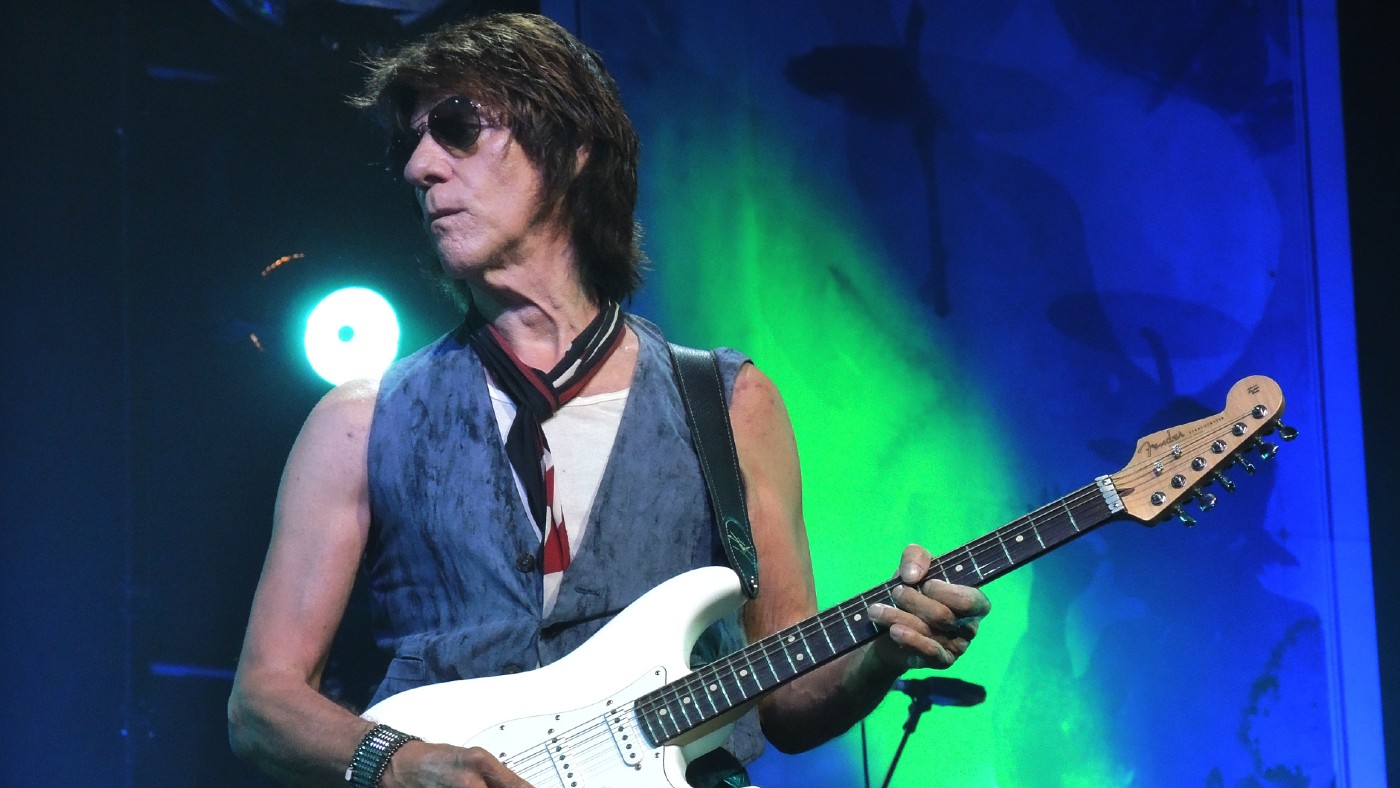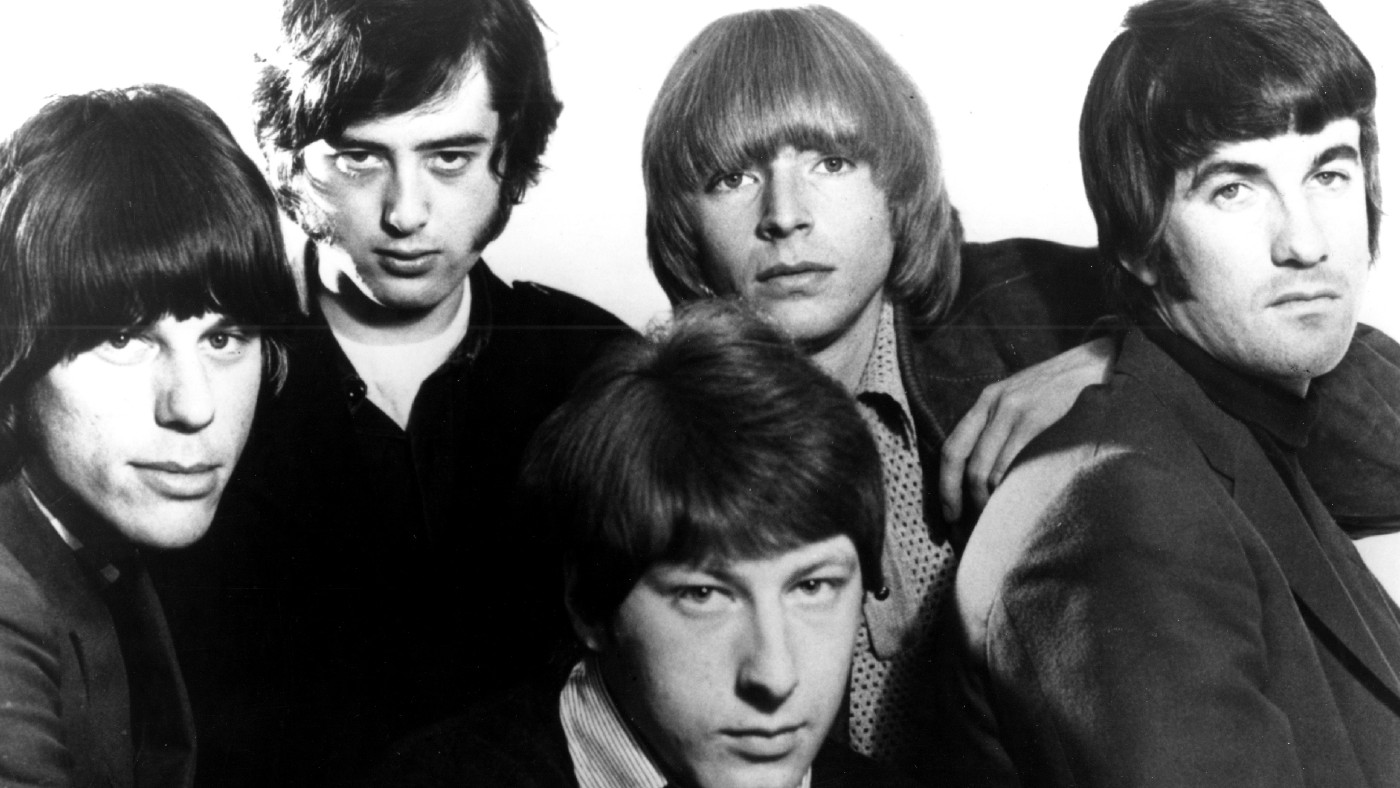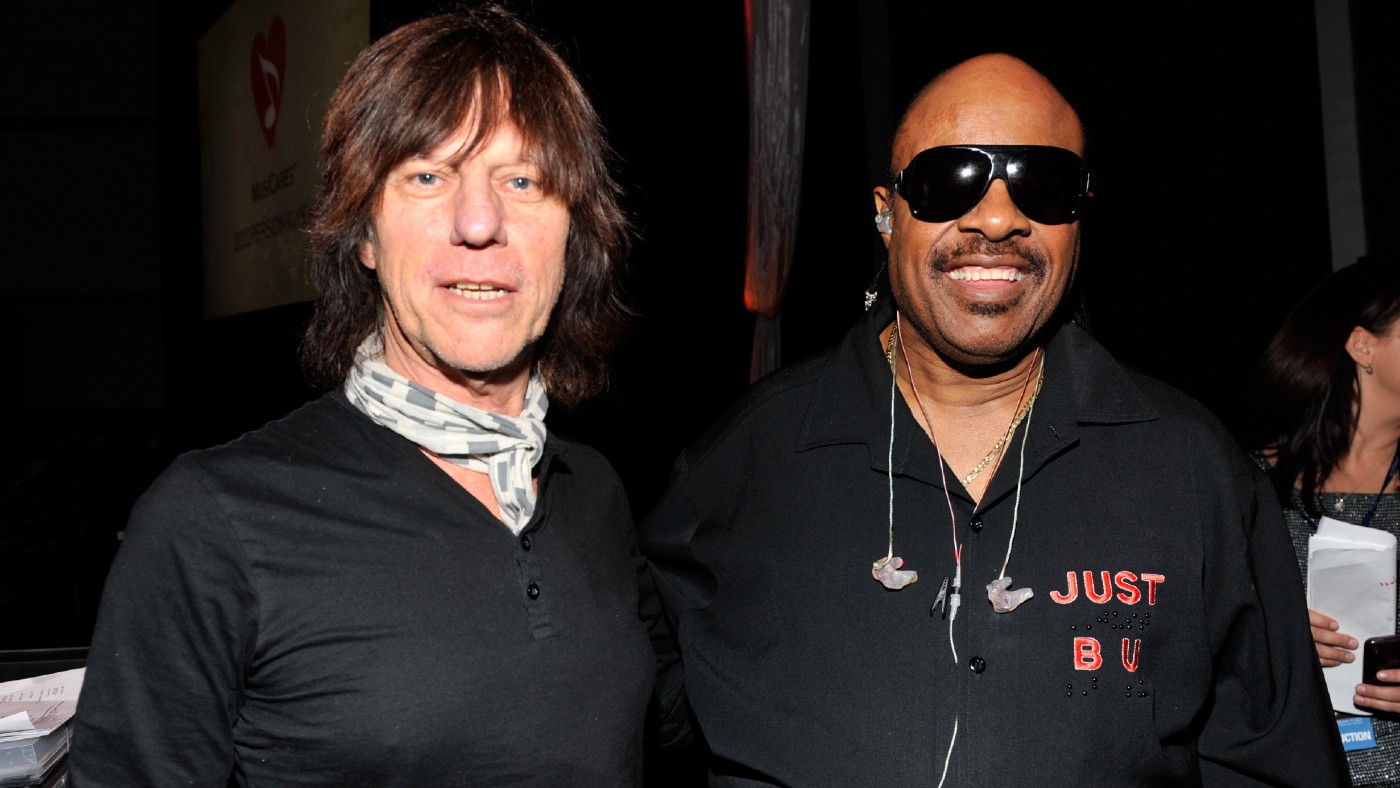Jeff Beck obituary: remembering the guitarists’ guitarist
The musician won eight Grammys and collaborated with everyone from Mick Jagger to Stevie Wonder

A free daily email with the biggest news stories of the day – and the best features from TheWeek.com
You are now subscribed
Your newsletter sign-up was successful
Jeff Beck, who has died aged 78, was widely regarded as one of the greatest rock guitarists of all time, said The Daily Telegraph. A “dazzling and innovative” self-taught virtuoso, he coaxed, squeezed and wrung “every conceivable musical note and emotion out of the instrument of which he was indisputably master”, producing sounds that other musicians had not imagined the guitar could make.
But as he rarely sang, composed scarcely more, and for long periods avoided both stages and studios, he was never as widely known as Jimmy Page or Eric Clapton, the two other great axemen to emerge from his home county of Surrey in the 1960s – and he was often referred to as the “guitarists’ guitarist”.
He won eight Grammys, but his biggest hit was a song of which he was not remotely proud: Hi Ho Silver Lining spent 14 weeks in the charts in 1967, and has been “a wedding dance-floor perennial ever since”.
The Week
Escape your echo chamber. Get the facts behind the news, plus analysis from multiple perspectives.

Sign up for The Week's Free Newsletters
From our morning news briefing to a weekly Good News Newsletter, get the best of The Week delivered directly to your inbox.
From our morning news briefing to a weekly Good News Newsletter, get the best of The Week delivered directly to your inbox.
Early life
Geoffrey Arnold Beck was born in Wallington, a suburb just outside London, in 1944. His father was an accountant, his mother worked in a factory. She played the piano, and forced him to have lessons, which he did not enjoy. He became fascinated by blues, and rock’n’roll, however, and in his teens he taught himself to play the guitar. He even built his own, out of a cigar box and a fence post.
While at Wimbledon College of Arts, he befriended Jimmy Page and played with a variety of bands, including Screaming Lord Sutch and the Savages. He formed his own band, The Nightshift, in 1963; then Page put Beck’s name forward to replace Clapton in The Yardbirds. Other musicians might have baulked, said Alexis Petridis in The Guardian. Clapton had established himself as the Yardbirds’ star attraction.

Beck looked as though he were being “set up to fail”. And yet, he didn’t “just replace Clapton”; he transformed the band “from blues purists struggling to square their love of Buddy Guy and Freddie King with the necessity of having pop hits... to a band at the vanguard of British pop’s relentless forward progress”.
On the first single he recorded with them, Heart Full of Soul, he made his guitar mimic a sitar (months before The Beatles recorded Norwegian Wood); and by 1966, and the “howling feedback” on Shapes of Things, they were a completely different band, pointing the way forward to the psychedelic era.
A free daily email with the biggest news stories of the day – and the best features from TheWeek.com
Life after The Yardbirds
He left The Yardbirds acrimoniously in 1966 and formed the Jeff Beck Group in early 1967, with Ronnie Wood and Rod Stewart. By then, though, Beck was gaining a reputation for unreliability, said The Times, and those two eventually quit, later joining the Small Faces; Beck, ever restless, launched another band, Beck, Bogert & Appice, before embarking on a solo career, one of the highlights of which was the “groundbreaking”, George Martin-produced, jazz-rock fusion album Blow by Blow (1975).

It re-established his reputation, but his career remained “stop-go”. He collaborated with everyone from Mick Jagger and Stevie Wonder to Johnny Depp, and continued to experiment with various musical genres, including classical; but there were long breaks when he made very little music at all.
He disliked crowds, and was happiest at home, tinkering with his collection of classic hot rod cars. “When Led Zeppelin made it so big, I was jealous, absolutely jealous as hell,” he said in 1986. “But I’m glad I carried on as I was. I personally couldn’t have put up with that mass adulation.”
-
 Why are election experts taking Trump’s midterm threats seriously?
Why are election experts taking Trump’s midterm threats seriously?IN THE SPOTLIGHT As the president muses about polling place deployments and a centralized electoral system aimed at one-party control, lawmakers are taking this administration at its word
-
 ‘Restaurateurs have become millionaires’
‘Restaurateurs have become millionaires’Instant Opinion Opinion, comment and editorials of the day
-
 Earth is rapidly approaching a ‘hothouse’ trajectory of warming
Earth is rapidly approaching a ‘hothouse’ trajectory of warmingThe explainer It may become impossible to fix
-
 Kia EV4: a ‘terrifically comfy’ electric car
Kia EV4: a ‘terrifically comfy’ electric carThe Week Recommends The family-friendly vehicle has ‘plush seats’ and generous space
-
 Bonfire of the Murdochs: an ‘utterly gripping’ book
Bonfire of the Murdochs: an ‘utterly gripping’ bookThe Week Recommends Gabriel Sherman examines Rupert Murdoch’s ‘war of succession’ over his media empire
-
 Gwen John: Strange Beauties – a ‘superb’ retrospective
Gwen John: Strange Beauties – a ‘superb’ retrospectiveThe Week Recommends ‘Daunting’ show at the National Museum Cardiff plunges viewers into the Welsh artist’s ‘spiritual, austere existence’
-
 Bad Bunny’s Super Bowl: A win for unity
Bad Bunny’s Super Bowl: A win for unityFeature The global superstar's halftime show was a celebration for everyone to enjoy
-
 Book reviews: ‘Bonfire of the Murdochs’ and ‘The Typewriter and the Guillotine’
Book reviews: ‘Bonfire of the Murdochs’ and ‘The Typewriter and the Guillotine’Feature New insights into the Murdoch family’s turmoil and a renowned journalist’s time in pre-World War II Paris
-
 6 exquisite homes with vast acreage
6 exquisite homes with vast acreageFeature Featuring an off-the-grid contemporary home in New Mexico and lakefront farmhouse in Massachusetts
-
 Film reviews: ‘Wuthering Heights,’ ‘Good Luck, Have Fun, Don’t Die,’ and ‘Sirat’
Film reviews: ‘Wuthering Heights,’ ‘Good Luck, Have Fun, Don’t Die,’ and ‘Sirat’Feature An inconvenient love torments a would-be couple, a gonzo time traveler seeks to save humanity from AI, and a father’s desperate search goes deeply sideways
-
 A thrilling foodie city in northern Japan
A thrilling foodie city in northern JapanThe Week Recommends The food scene here is ‘unspoilt’ and ‘fun’